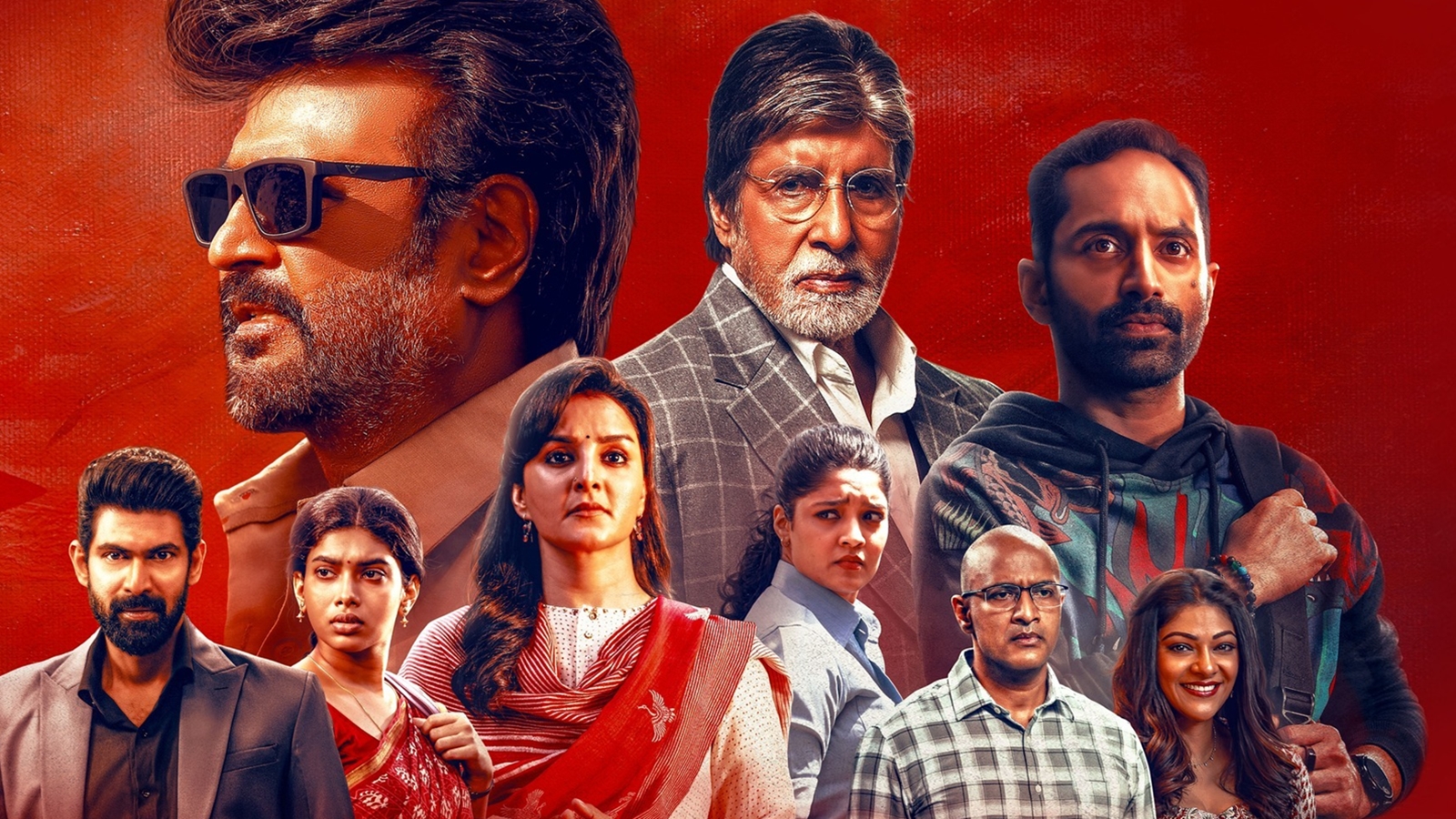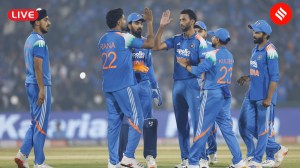Click here to follow Screen Digital on YouTube and stay updated with the latest from the world of cinema.
One year of Rajinikanth’s Vettaiyan: A bold critique of Tamil cinema’s vigilante obsession
TJ Gnanavel’s use of Rajinikanth’s stardom as a narrative device to provoke a much-needed discussion on the ethics of vigilantism is what sets Vettaiyan apart from the countless violent noise machines masquerading as mainstream cinema today.
 Few films have challenged the incessant glorification of vigilantism on screen as sharply as Rajinikanth’s Vettaiyan, released a year ago.
Few films have challenged the incessant glorification of vigilantism on screen as sharply as Rajinikanth’s Vettaiyan, released a year ago.Over the years, Tamil cinema has often transformed the public’s outrage against corruption and injustice into a simplistic trope, the vigilante-hero tentpole. Few films have challenged the incessant glorification of vigilantism on screen as sharply as Rajinikanth’s Vettaiyan, released a year ago.
The film uses the heroic vigilante figure, embodied by Rajinikanth’s Vettaiyan, as a narrative bait to critique how cinema’s larger-than-life portrayals of ‘justice’ are hollowed out by a film industry largely indifferent to the real-world consequences of such extrajudicial punishments.
Director T.J. Gnanavel, who made a remarkable debut with Jai Bhim, uses Rajinikanth’s stardom as a platform to examine the idea of justice, and how mainstream cinema has desensitized generations to vigilante violence through years of glorifying heroes who take up arms against an unresponsive system. Vettaiyan inverts this gaze, confronting an audience shaped by spectacle-driven cinema, where the creative ways of killing wrongdoers outside the law have long been the spectacle itself.
How Vettaiyan subverted the template vigilante Tamil film
A murder and rape case involving a school teacher serves as the scaffolding against which Vettaiyan explores how the intricacies of violent justice and spectacle are tightly intertwined. The film situates itself within a social context where “encounters” are perceived as a specialized skill set, and murder becomes a means to earn social media validation and preserve the optics of power.
The gnarly, self-indulgent fantasies of a captive filmgoing audience, one that delights in watching its heroes take justice into their own hands with style and conviction, mistaking it for an act of rebellion, are subverted in Vettaiyan. Here, the aesthetics of the “mass” vigilante film are filtered through a single, unsettling question: What happens if you kill an innocent man in your attempt to deliver justice?
 A poster of Vettaiyan. (Image: Lyca/Facebook)
A poster of Vettaiyan. (Image: Lyca/Facebook)
The film hinges on this moral dilemma, using the often-caricatured human rights advocate in the form of a retired judge, played by a perfectly cast Amitabh Bachchan, as the ideological counterweight to Rajinikanth’s unhinged investigation officer, a man who rarely hesitates before pulling the trigger on those he deems guilty. The line “Justice hurried is justice buried,” delivered by Bachchan, becomes the film’s way of reckoning with decades of storytelling that glorified the gore and thrill of extrajudicial killings while sidelining the moral weight of such reckless portrayals of justice on screen.
S Shankar’s films have explored the entire spectrum of the social-justice-warrior template and the vigilante archetype. The instant, on-the-spot gratification audiences derive from the swift and often sensational delivery of “justice” is the primary selling point of these stories. The formula is simple: the hero is wronged in his formative years and later takes up arms against systemic injustice. That’s it.
Films like Gentleman, Indian, and Anniyan explore different facets of this template but offer little nuance in depicting how these generalized notions of justice and righteous anger can lead to irrevocable collateral damage. While Shankar’s protagonists, from Senapathy in Indian to Ambi in Anniyan, are shown to experience emotional turmoil to varying degrees, the social impact of their actions is portrayed as uniformly positive.
Senapathy from Indian has to reckon with his son being a wrongdoer, while Ambi is remorseful of his actions, but the director uses the conceit of the ‘multiple personality’ disorder to abdicate the film and it’s leading man of any moral introspection. These films engage with the moral consequences of their dynamic vigilantism, but are all projected inwards towards the personal life of the hero. Often times, the people being killed are caricaturish, buffoonish figures who deserve to die and are just data to be complied by the hero in their long monologues about the need to enforce corrective justice.
The vigilante hero forced to deal with the consequences of his actions
 A still of Rajinikanth and Amitabh Bachchan, Manju Warrier in Vettaiyan.
A still of Rajinikanth and Amitabh Bachchan, Manju Warrier in Vettaiyan.
Vettaiyan, on the other hand, builds its story around a young man who loses his life, serving as the catalyst for the hero’s redemptive arc. What sets the film apart is its radical humanization of this young man. In the first half, the film positions him as guilty, turning the audience against him, only to gradually pull the rug out from under us. As viewers, we are comfortably aligned with the hero, Vettaiyan, who responds to his superior’s one-week deadline for the “encounter killing” with the punchline: “One week is too much, sir. The department will reclaim its honor in three days.”
This line takes on a life of its own, reflecting how the hasty, performative nature of “encounters” has devolved into hollow acts of spectacle, gestures of showmanship stripped of meaning in a world where truth itself has become an inscrutable variable amid the noise of online discourse. As the craving for quick, manufactured justice turns into a punchline for insensitive TV anchors and hashtag campaigns, Vettaiyan reminds us of the dangers of being intoxicated by our own self-righteousness, devoid of introspection and nuance in how we view violence as a solution to social decay.
Watch | Dude trailer: Pradeep Ranganathan’s wacky romantic comedy with Mamitha Baiju looks chaotic
The film functions as a provocative pushback against the conventionally regressive vigilante playbook, pitting two competing ideologies against each other in a clash of morality and conviction. Amitabh Bachchan’s reasoning and rhetoric are used to spark a conversation on vital issues, albeit in a somewhat heavy-handed way. It plays out like a verbal duel, dramatized to embody both sides of the argument. Vettaiyan cleverly employs the grammar and genre pleasures of a rousing superstar vehicle to deliver a precise argument: that taking justice into one’s own hands always carries a cost. You still get the action set pieces, the dialogue baazi, and the signature Rajinikanth swagger, but all in service of a story that genuinely deserves to be told.
When a superstar like Rajinikanth takes on the challenge of confronting the very wrongs perpetuated by commercial cinema, it becomes a far more resonant and courageous act of course correction. TJ Gnanavel’s use of Rajinikanth’s stardom as a narrative device to provoke a much-needed discussion on the ethics of vigilantism is what sets Vettaiyan apart from the countless violent noise machines masquerading as mainstream cinema today.
- 01
- 02
- 03
- 04
- 05


































